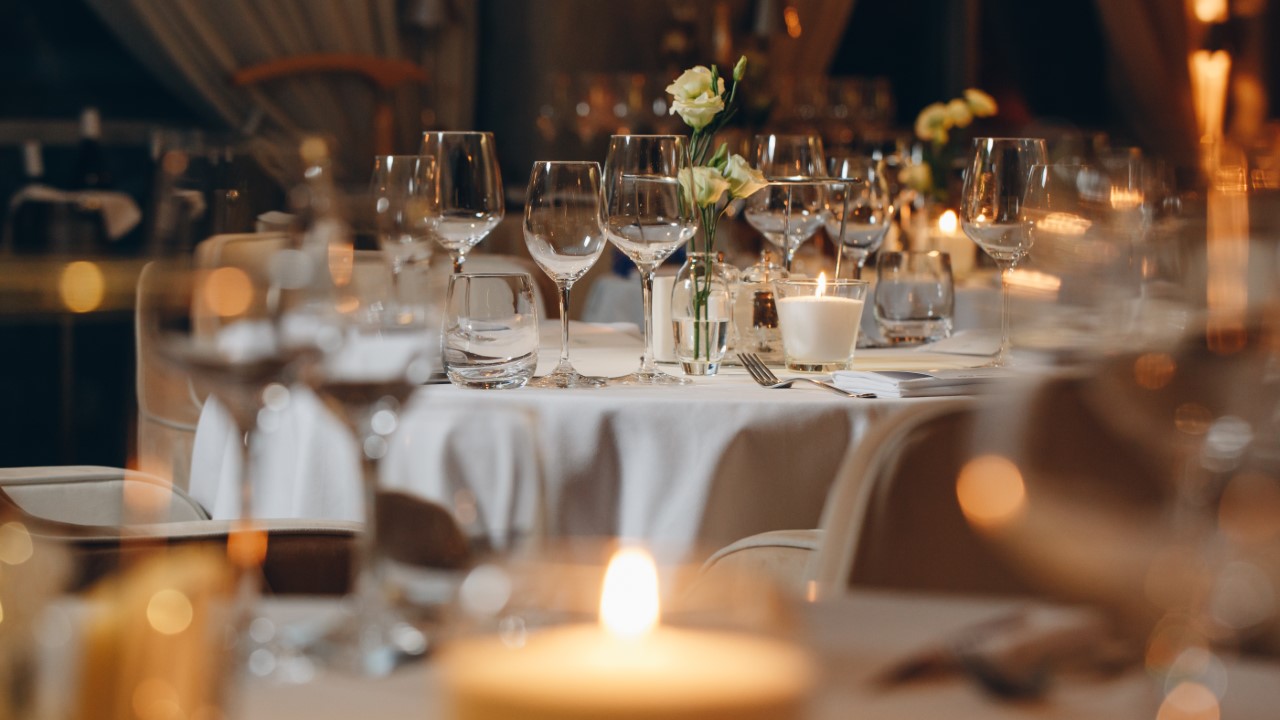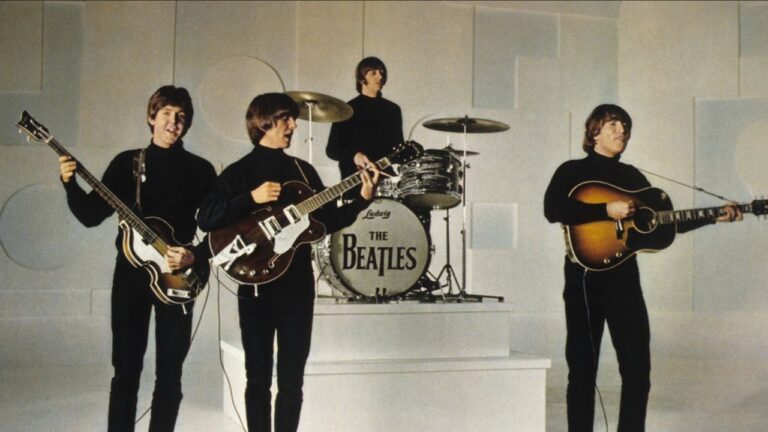24 Table Manners Everyone Forgets About (And Why You Should Care)

Suppose you remember learning to hold your utensils properly or to keep your elbows off the table when growing up while wondering why it was so important. In that case, you’re familiar with the many rules of proper table etiquette.
You might have forgotten some table manners, but they’re essential, especially when going to a hosted dinner party or date night.
Good table manners will make you look more confident and help you put your best foot forward at your next dining event. These table manners are ones everyone quickly forgets about but should always remember.
Keep Your Phone off the Table

Your phone shouldn’t be out on the table at any point during your meal unless it’s an emergency. If your phone is out or on the table during dinner, it sends out a message to others that you’re distracted and find something else more important than the present moment.
Putting your phone away is a simple, thoughtful act you can do to be respectful and present.
Keep Bags, Purses, and Other Items off the Table

Just like your phone should be far away from the dining table, so should your personal items, such as a purse, wallet, or anything else. Putting your items on the table can be distracting for other guests and will clutter the table.
This simple act shows you don’t respect other people’s space and are okay with taking up more space than others.
Place Your Napkin on Your Lap

When you sit down, unfold your napkin and place it on your lap. This tip is easy to forget as most people use it once and crumple it up, but keeping it laid out smoothly on your lap is more polite.
The napkin protects your clothes from spills and is always on hand when you need to wipe your mouth subtly. Your lap is the best place to keep it.
Keep Your Elbows off the Table

Keeping your elbows off the table is one of the most popular table etiquette rules, but is it really that important? While it may sound like an outdated rule—there’s a good reason behind it.
When you eat while keeping your elbows off the table, you respect the other guests’ personal space and boundaries.
Wait to Eat Until All Food Arrives

This is an important rule you won’t want to forget the next time you’re invited out to dinner. You may be hungry, but eating before everyone gets their food is terrible form. Instead, wait until everyone has their food in front of them before digging in.
You don’t want to be the one person who starts eating before everyone else has gotten their meals.
Put Your Napkin on Your Chair

When you leave the table to go to the restroom or for any other reason, leave your napkin on your chair. This way, you’ll save your seat while keeping your dirty napkin off the table.
Even if you haven’t used your napkin, leaving it on your chair is more polite than discarding it on the table.
Don’t Pick up Dropped Utensils

You might think you’re being polite by picking up a dropped fork or knife, but you’re being unknowingly rude. Please don’t pick up a dropped utensil and return it to the table.
The utensils are dirty, and even if you wipe them clean, it’s better not to touch the table since some guests see this as rude, not to mention unclean.
Don’t Answer Phone Calls or Texts

In today’s culture, being on our phones and taking calls throughout the day is normal. Life is busy, and it’s not easy to keep up with all the demands but leave your phone alone when you’re out for dinner with others. If you’re out for dinner at a romantic restaurant, your partner will undoubtedly judge you for answering a call or text during the meal.
Please keep it in your pocket or purse unless it’s an emergency so your host or guests know they have your full attention and respect.
Chew With Your Mouth Closed

This might seem like a no-brainer, but it’s easy to forget to chew with your mouth closed, especially if you’re dining with friends or family. Constantly chew with your mouth closed and avoid talking until you have no food.
Being mindful of how you eat will make your and everyone else’s dining experience much more pleasant.
Eat Slowly

Enjoy your meal, even if you’re hungry or enjoying it. Eating too fast can make others feel rushed, especially since it’s good etiquette to match the host’s and other guests’ pace.
Instead, take it slow and pace yourself. Eat slowly, savor every bite, and enjoy the conversation at the table.
Ask to Be Excused

Before getting up out of your seat, always ask to be excused. Although you’re not asking for permission, announcing that you’re getting up before you do is more respectful.
Leaving without saying anything could leave guests wondering where you went, which isn’t the politest move at the table.
Rest Your Utensils on the Plate

When you’re mid-meal, if you need to pause or take a break, rest your utensils on your plate instead of on the table. Your utensils are likely dirty, so it’s best to avoid getting the table dirty.
Plus, you’ll leave those beside you with more space and keep things looking tidy.
Use the Serving Utensils

Remember to use the serving utensils in the bowls! Although it’s convenient and easy to use your fork or spoon to get your serving, it’s always best practice to use a serving utensil if there’s one.
They’re there for a reason and using them is respectful to the others at the table and the host.
Offer to Hold Plates for Others

When you’re passing around food to those around you, always offer to hold heavy plates for other guests while they serve themselves. This is a simple and thoughtful way to help others at the table, and people will appreciate your kindness.
It’s also a great way to show proper table manners and respect those around you.
Scoop Soup Away From You

Did you know it’s more polite to scoop soup away from your body than towards it? When you scoop away from yourself, you have to do so slowly, which helps to keep the soup from splashing around on the table or other guests.
Carefully scoop the soup away from yourself when eating to be respectful and courteous.
Don’t Hold Utensils in a Fist

This primary rule often shows those at the table whether you have good table manners or still need a few lessons. Avoid holding your utensils in a fist.
Some people may not think twice about how you hold your utensils, but some cultures see it as impolite and improper.
Pass Salt and Pepper Together

Always pass the salt and pepper together when you’re passing around seasoning. Even if someone only asked you for one, this small act shows you were taught table manners and are considerate.
Then, when someone else asks for either seasoning, they can pass them both without worrying about finding the other one.
Eat Bread Piece by Piece

It’s tempting to eat an entire bread roll with your hands, but it’s not a good look and is considered bad manners. Rather than cutting or biting off chunks of bread, rip a small piece off and butter each piece individually.
This way, you’ll take time eating while showing off your top-notch table manners.
Stir Soup to Cool It Down

Avoid blowing on your soup to cool it down; stir it slowly. In some cultures, blowing on your soup is considered disrespectful and unmannerly, which you don’t want to come across as being.
You’re also more likely to blow the soup out of the bowl, making a mess or, even worse, burning yourself or someone else.
Don’t Leave the Table Before Everyone Is Finished

Proper table manners are about pacing yourself and being mindful of those around you. That’s why you should only get up to leave the table after everyone finishes eating.
This is a major faux pas and doesn’t respect those still eating. The last thing you want to do is make others feel rushed when they’re eating.
Don’t Stack Your Plates

Be sure to stack your plates for the server or host when you finish your meal. You may feel like you’re doing them a favor and making cleaning up more manageable, but you could be doing the opposite.
Stacking your plates makes a mess and makes it harder for your server or host to collect them. Instead, leave them as they are and let the host stack them when ready.
Offer to Help

If you’re having dinner at someone’s home, always offer to help the host with clean up or anything else they need. It’s good etiquette and manners to provide a hand to those who spent time and energy preparing a meal for you.
Even if you know the host won’t accept your offer, it’s always kind to ask, and they’ll appreciate that you did.
Respect the Host’s Wishes

If you’ve asked to offer the host help with clean-up duties and they’ve declined, respecting their wishes is more polite than insisting on helping. Some people would rather clean up themselves and don’t want their guests to have to lift a finger during or after their meals, and that’s okay!
It doesn’t mean they don’t trust you to help. They may be more comfortable taking care of everything themselves.
Thank the Host

Before you leave, thank the host for a beautiful dinner and time. It seems obvious, but forgetting your gratitude for being hosted is easy, especially when dining with family or friends. Thank them for having you over and compliment them on the meal.
You’ll make them feel appreciated while expressing your gratitude and stellar manners.





